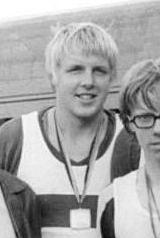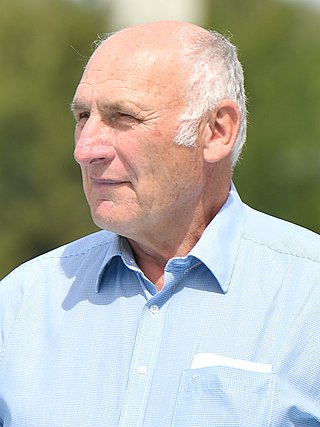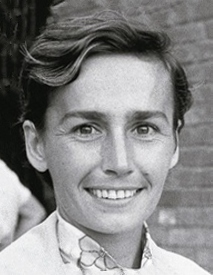Romano Sgheiz is an Italian competition rower and Olympic champion.

Igor Aleksandrovich Rudakov is a Russian former coxswain who competed for the Soviet Union in the 1960, 1964, 1968, and in the 1972 Summer Olympics.

Siegfried Brietzke is a German rower. He competed for East Germany, first in coxless pairs, together with Wolfgang Mager, and then in coxless fours. In these events he won Olympic gold medals in 1972, 1976 and 1980, as well as four world championships in 1974–1979.

Hans-Johann Färber is a German rower who competed for West Germany in the 1968 Summer Olympics and in the 1972 Summer Olympics.

Elena Giurcă was a Romanian rowing coxswain. She took up rowing in 1966 and debuted internationally at the 1969 European Championships, winning a bronze medal in the eights. Later, she mostly competed in the quadruple sculls, finishing third and fourth at the 1976 and 1980 Summer Olympics, respectively. She also won silver medals in this event at the 1974 and 1977 world championships.
The 1970 World Rowing Championships was the 3rd World Rowing Championships. It was held in 1970 at the Royal Canadian Henley Rowing Course in St. Catharines, Ontario, Canada. The competition involved seven events. Prior to the 4th World Rowing Championships in 1974, only men competed.
The 1974 World Rowing Championships was the fourth World Rowing Championships. It was held from 4 to 8 September 1974 and from 29 August to 1 September 1974 on the Rotsee in Lucerne, Switzerland. The event was significantly extended from the 1970 edition, with the addition of both women's and lightweight men's events. Six women boat classes were added, three lightweight men classes, plus quad scull for men, increasing the number of boat classes from seven in 1970 to seventeen in 1974. This was also the last World Championships held on a quadrennial cycle – from this point, World Championships were held annually.

The 1964 European Rowing Championships were rowing championships held on the Bosbaan regatta course in the Dutch capital Amsterdam. Women competed from 31 July to 2 August. Men competed the following week from 6 to 9 August. Men competed in all seven Olympic boat classes, and women entered in five boat classes. Many of the men competed two months later at the Olympic Games in Tokyo; women would first be allowed to compete at Olympic level in 1976.

The 1967 European Rowing Championships were rowing championships held on Lake Allier, a reservoir in the Allier River adjacent to the French city of Vichy. This edition of the European Rowing Championships was held from 1 to 3 September for women, and from 7 to 10 September for men. Women entered in five boat classes, and 14 countries sent 40 boats. For the first time, a women's team from outside Europe attended the championships, with the USA sending two boats. Men competed in all seven Olympic boat classes, and 24 or 25 countries sent 113 boats. Three non-European countries sent some (male) rowers: the United States, Australia, and New Zealand.

The 1954 European Rowing Championships were rowing championships held on the Bosbaan regatta course in the Dutch city of Amsterdam. This edition is particularly notable for the fact that it was the first time that women were allowed to compete as part of the championships, after three years of trial regattas for them. Women from 13 countries were represented with 34 boats, and they competed in five boat classes from 20 to 22 August. The men competed in all seven Olympic boat classes a week later, from 26 to 29 August. It would be another 22 years until women would first be allowed to compete at Olympic level in 1976.
The 1963 European Rowing Championships for men were rowing championships held on Lake Bagsværd near the Danish capital Copenhagen; the competition for women was held the following month in Moscow. The regatta in Copenhagen was held from 14 to 18 August.
Boris Fyodorov is a Soviet rower. He had a long career, having won international medals between the ages of 22 and 35.
Vladimir Rikkanen is a Soviet rower from Russia.
Elmārs Rubīns is a Soviet rower from Latvia.
Viktor Mikheyev is a Soviet coxswain from Moscow.
Udo Brecht is a German rower who represented West Germany.

The 1955 European Rowing Championships for men were rowing championships held in the Belgian city of Ghent. The venue was the Watersportbaan, which was built for these championships and was part of Belgium's preparation for their bid to host the 1960 Summer Olympics. The competition for women had been held earlier in the month in Bucharest. The event in Ghent was held from 25 to 28 August and they competed in all seven Olympic boat classes. Some 400 competitors from 21 countries competed.

The 1935 European Rowing Championships were rowing championships for men held on the Berlin-Grünau Regatta Course in the German capital of Berlin. The event was a test run for the rowing part of the 1936 Summer Olympics that were to be held at the same venue. The rowers competed in all seven Olympic boat classes.
The 1924 European Rowing Championships were rowing championships held on Lake Zürich in the Swiss city of Zürich. The competition was for men only and they competed in six of the seven Olympic boat classes as they had been rowed earlier in the summer at the 1924 Summer Olympics in Paris; the new Olympic boat class of coxless four (M4-) was also part of the European Rowing Championships, but the only competitor would be Switzerland and they didn't want to win the European championship by row-over. It was the first time that the coxless pair boat class was part of the regatta.
Barbara Müller, is a rower who represented East Germany in the 1960s. She was later a rowing coach for SG Dynamo Potsdam.








